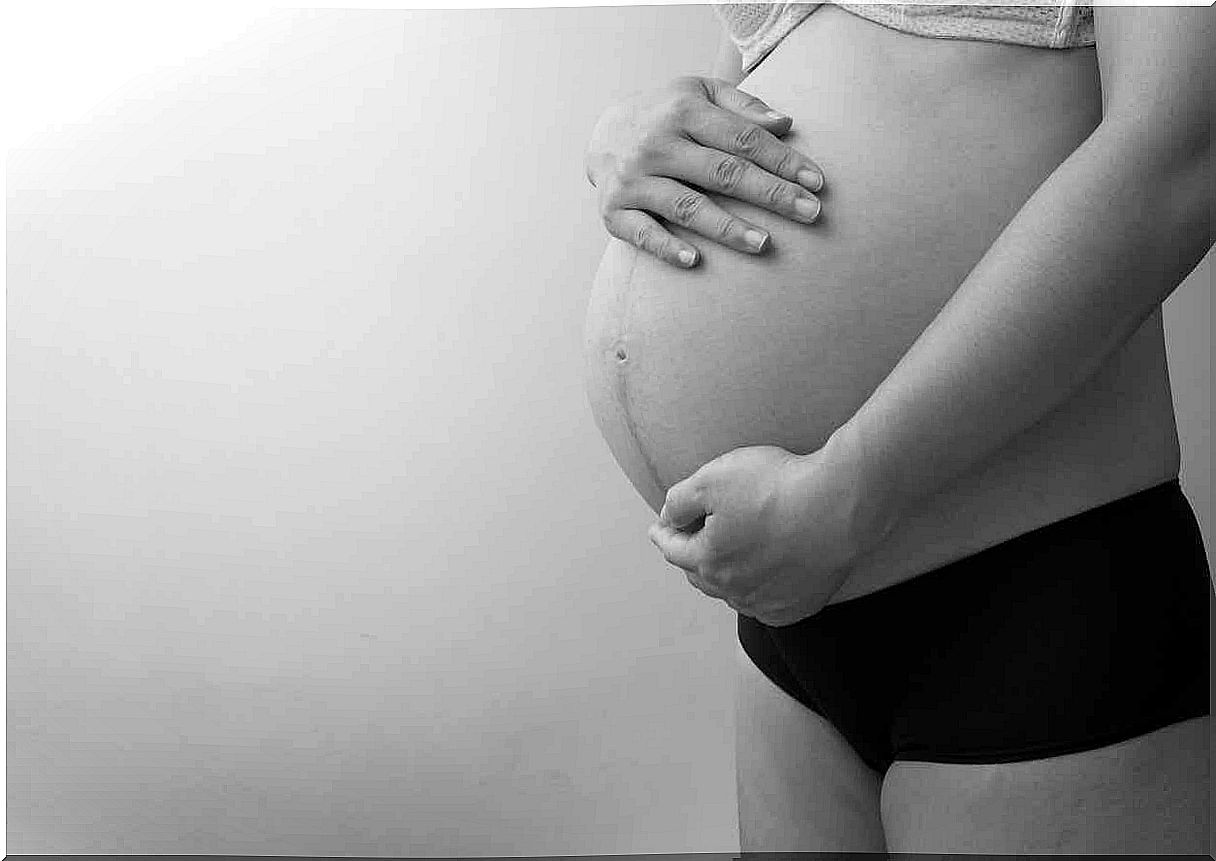Low-lying Belly During Pregnancy: What Does It Mean?

All families often talk about the low-lying belly during pregnancy when a pregnant woman is in the conversation! It is inevitable to notice it and not to think about what might happen. Especially with the close birth, which usually results in great tension in families.
However, it is important to note that the relationship between having a low-lying belly during pregnancy and the date of birth or even the presence of abnormalities in the baby is very inaccurate.
For this reason, we tell you in this article what the real reason is for having a low-lying belly during pregnancy and what you can expect from it. Read on!
What does it mean to have a low-lying stomach during pregnancy?
As the name suggests, a low-seated abdomen means that the most voluminous part of the mother’s abdomen is slightly tilted downwards. Rather than just being a simple consequence of gravity, a low-lying stomach is the result of several factors (fetus and mother) that are completely natural.

Many people associate a low-lying stomach with other factors, especially when problems with the baby’s development occur. The fact is that while the size and shape of the abdomen may say something about the baby’s condition, it is not an accurate measurement.
What factors influence this?
There are several factors that can affect the shape and location of the mother’s abdomen. The most obvious are those related to the upcoming baby. These include the presence of multiple babies, the position of the baby (in the case of lying lengthwise, with the head down or up) and the specific size of the baby.
Some traits of the mother may also affect this, as the appearance of the stomach may vary depending on her build.
In short, having a low-lying stomach is the result of several natural factors that are not directly related to the impending birth or problems with the baby, as you will see below.
What does a low-lying stomach indicate during pregnancy?
As the pregnancy progresses, the factors we have discussed affect the appearance of the mother’s abdomen little by little. This causes it to “fall” for logical reasons. The uterus grows in the pelvis, and gradually it becomes larger and heavier.
The more the belly grows, the closer the due date is of course. However, this is not a reliable fact that should be followed blindly. Only proper examinations can predict the probable date of birth as well as any changes in the development of the baby.
How do I know if there are any problems with my baby?
As we have mentioned, prenatal control is the most important tool. During these checks, the midwife will assess the size of the abdomen and its position, usually by measuring the length of the uterus.
This method consists of placing a measuring tape on the abdomen. Depending on the results, it is possible to assess whether the baby is growing properly. This is an old and not so accurate method, but due to its availability it is still used today.
The most accurate method of determining uterine development is ultrasound scans. With this, the doctor can with greater accuracy determine the position of the baby and how far the woman is. The latter is important in estimating the probable date of birth. In fact, this technique is more effective than just observing a low-lying stomach.

Final recommendations
We know how exciting it can be to look at the mother’s womb and think about the future. It does not hurt anyone! However, it is important to know that there are many myths about it. Therefore, the most important thing is to leave these valuable facts about pregnancy to specialists in this field.
Therefore, the duty of a responsible mother is never to neglect her checks to the doctor and midwife. It may initially be with a midwife, but there are moments during pregnancy where one should go to the obstetrician. This is more important in high-risk patients, e.g. in case of high blood pressure, diabetes or other diseases.









